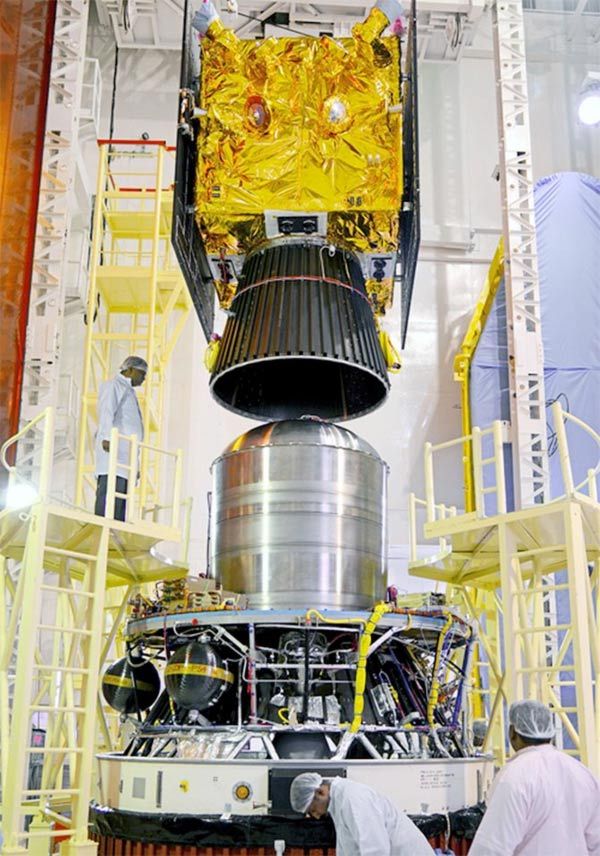
India successfully launched IRNSS 1C on board ISRO's PSLV C26 rocket from the spaceport in Sriharikota at 1.32 am on Thursday, moving a step closer to setting up the country's own navigation system on par with Global Positioning System of the US.
IRNSS 1C is the third of the series of seven satellites ISRO is planning to launch to put in place what is called the Indian Regional Navigation Satellite System.
Lifting off from the First Launch Pad in Sriharikota exactly at 1.32 am the rocket painted a golden brush of flames in the night sky and was a visual delight for onlookers.
Twenty minutes after the launch, the launch vehicle successfully placed the 1,425.4 kg weighing satellite on the intended orbit.
ISRO has aimed to launch the satellite into a sub Geosynchronous Transfer Orbit (sub GTO) with a 284 km perigee (nearest point to Earth) and 20,650 km apogee (farthest point to Earth) with an inclination of 17.86 degree with respect to the equatorial plane.
"India has successfully launched IRNSS 1C. The entire ISRO team deserves congratulations", ISRO chairman K Radhakrishnan said after the launch.
He also thanked the entire team that worked behind for the successful launch.
This was the seventh time ISRO was using an XL version of the PSLV rocket for its missions.
The mission life of the 1,425,4 kg is 10 years. The launch of PSLV 26 carrying IRNSS 1C was actually scheduled on October 10 rpt October 10 but the countdown was postponed following some technical reasons.
The fully deployed IRNSS system would consist of 3 satellites in GEO stationary orbit and four in inclined geosynchronous orbit, about 36,000 km altitude above earth.
The navigational system would provide two types of services -- Standard Positioning Service, which is provided to all the users and Restricted Service, which is an encrypted service provided only to the authorised users.
The IRNSS system, which would ultimately have 7 satellites and ground stations was targeted to be completed by 2015 at a total cost of Rs 1420 crores, ISRO sources said.
The first two satellites in the series -- IRNSS 1A and IRNSS 1B were launched in July last year and April this year respectively.
Being developed by India, IRNSS is designed to provide accurate position information service to users in the country as well as the region extending up to 1,500 km from its boundary, which is its primary service area.
IRNSS's applications include terrestrial and marine navigation, disaster management, vehicle tracking and fleet management, navigation aide for hikers and travellers, visual and voice navigation for drivers.
While India is developing its navigation system, a select group of countries have their own navigation systems -- Russia's Global Orbiting Navigation Satellite System (GLONASS), United States' Global Positioning System (GPS), European Union's Galileo (GNSS), China's BeiDou satellite navigation system and the Quasi-Zenith Satellite System.
Image: Indian Regional Navigation Satellite System-1C being assembled with PSLV-C26 Photograph: ISRO





